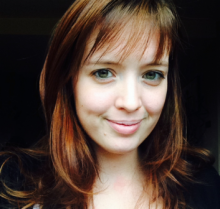
Amandine De Burchgraeve

Social Construction and Evolution of ‘Crime’ Representations: The conceptualization of ‘crime’, ‘criminal’ and ‘victim’ by the actors of the Criminal Court (Cour d’Assises) of Brabant (1867-1917)
In the interest of understanding how the image of crime – the one that appears in our current society’s debates – came to be constructed, A. De Burchraeve chooses to glance back at the 19th century in order to find possible answers to this question. During this century, crime becomes, for the first time, the subject of interrogation in multiple democratic spaces of society (prison, police, scientific environment, etc.). One of the places in which the different discourses about crime confront each other is the ‘trial ritual’ of the Criminal Court. In this environment, people socially construct the meaning of crime, which allows the historian to see how it evolves. As such, our research goal is to study the dynamic of construction and deconstruction of those discourses by analysing the conceptualisation of ‘crime’, ‘criminal’ and ‘victim’ by the social and judicial actors of the Criminal Court of Brabant between 1867 and 1917. This type of questioning will be answered through the analysis of the traces left by the actors in the Criminal Court’s trial records and in the Belgian press (local and national). By using methods utilised by social and cultural history, judicial anthropology and ethnomethodology, we aim to study the experts’ reports, the trial reports, the summary of arguments, the press articles and the images (of crime scenes) in order to put forward the perceptions, the expectations, the tolerances, the standards and the ambitions of a (bourgeois) society living in a developing state. This type of study, that finds itself at the crossing between history and anthropology, therefore allows us to open a door into the historiography of the ‘histoire du sensible’ and into that of the ‘Criminal Court history’, two study grounds that are rather scarce in Belgium.
Thesis director: Xavier Rousseaux
The Interuniversity Attraction Pole P7/22 "Justice & Populations: The Belgian Experience in International Perspective, 1795-2015" (BeJust 2.0) is part of the Interuniversity Attraction Poles Programme Phase VII (2012-2017), financed by the Belgian Science Policy Office of the Belgian State.
The IAP VII/22 Justice & Populations www.bejust.be is the outcome of a collaboration between the Cegesoma, the IAP coordination team (CHDJ-UCL) and the Royal Military Academy. Design: tangografix. Powered by Drupal
